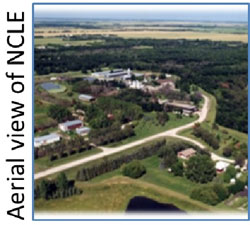



Non-antibiotic Treatments Show Promise Against E. Coli Infections
CANADA - The challenge of post-weaning diarrhoea in piglets is a significant economic issue for hog producers, particularly when Escherichia coli (E. coli) is involved, writes Glenn Kuhn, Swine Technical Manager at Genesus Inc.The use of feed grade antibiotics in piglet starter diets has become a common tool to fight against mortality and morbidity in young growing pigs in order to reduce a negative economic impact. However, increasing attention on the part of the general public towards antibiotic use in livestock agriculture has given rise to opportunity for researchers and producers alike to explore alternative methods to control the effects of E. coli infections.
A paper detailing research conducted at the T.K. Cheung Centre for Animal Science Research at the University of Manitoba was recently published in the Journal of Animal Science. Research authors, C.M. Nyachoti, E. Kiarie, S.K. Bhandari, G. Zhang, and D.O. Krause conducted experiments to assess the effectiveness of a commercially available non-antibiotic water-based supplement (Entegard, Neova Technologies Inc.) versus a commercially available antibiotic treatment and a control (no treatment).
The active ingredient of Entegard is Lysozyme, a low molecular weight protein with antimicrobial properties derived from chicken egg whites. Discovered in the 1920s by Alexander Fleming during one of his experiments, this enzyme possesses ‘lysing’ or destructive qualities to bacteria and viruses.
In their experiment, Nyachoti, et al., selected a total of 36 [(Yorkshire × Landrace) female × Duroc male; Genesus, Oakville, Manitoba, Canada] piglets weaned at 17±1 days from the Glenlea swine research unit at the University of Manitoba. The piglets were divided into four groups: control (no treatment), AB (Aureo 250 treatment), EG1 (Entegard 0.1 per cent) and EG2 (Entegard 0.2 per cent). After seven days of treatment, pigs were challenged with E. coli.
 |
After seven days of challenge, piglet performance was analysed to determine the differences in effects, if any among the treatments. Average daily feed intake (ADFI), average daily gain (ADG), feed to gain ratio (F:G) as well as small intestinal quality assessment and weight were recorded.
As a result, the AB, EG1 and EG2 treatments performed similarly compared to the control groups for ADFI, ADG and F:G in the post challenge period.
Additionally, small intestine quality assessments showed that the ileum (the final section of the small intestine) benefitted from the lysozyme treatment. Lysozyme minimised the proliferation of E. coli in the ileum and protected the intestinal mucosa against E. coli.
The results of this study are encouraging in light of the growing public interest in reducing antibiotic use in hog production. It gives producers a scientific basis to make decisions on at least one of these new antimicrobial products.









